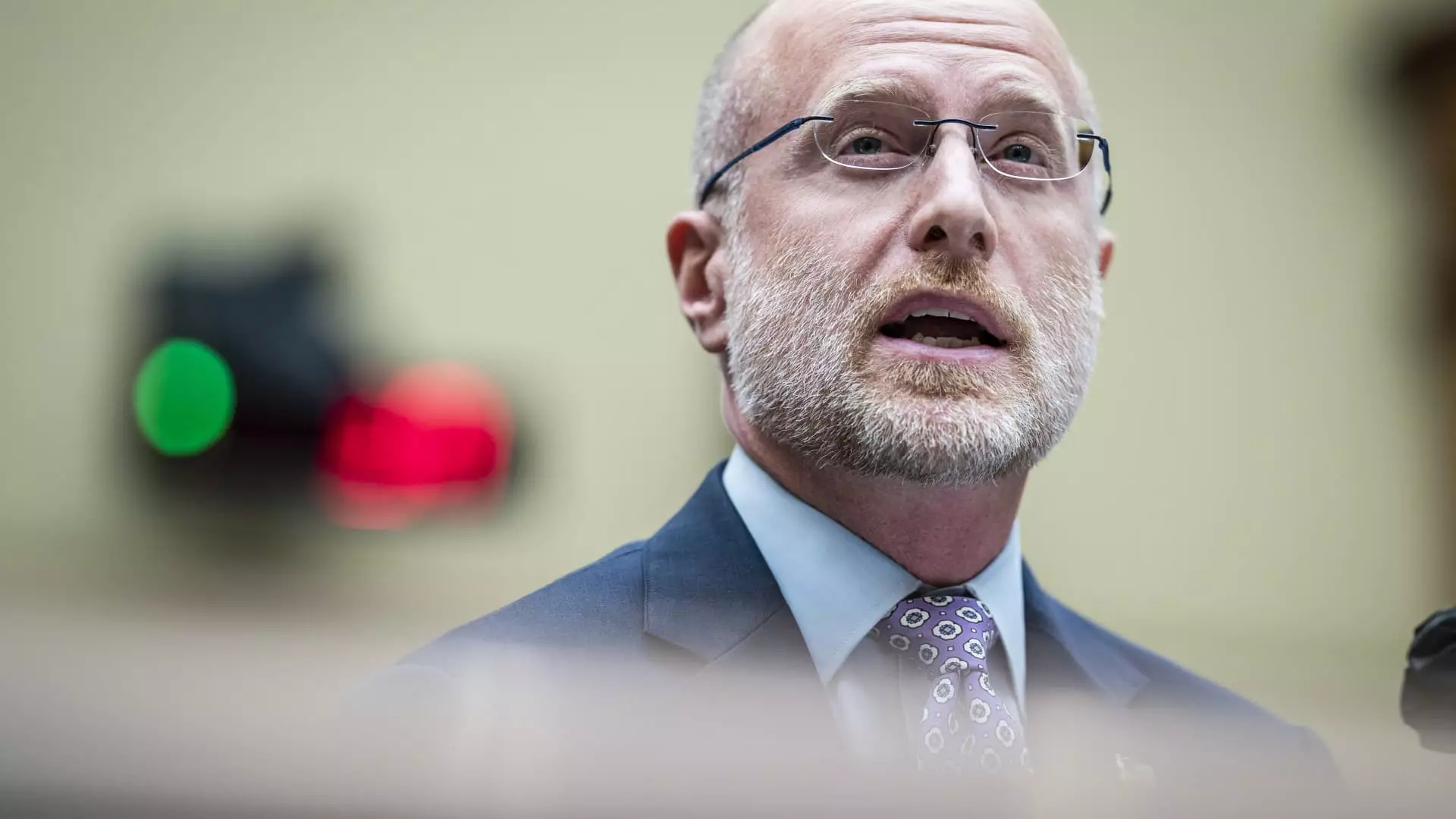The appointment of Brendan Carr as the new chairman of the Federal Communications Commission (FCC) by President-elect Donald Trump speaks volumes about the direction in which the administration plans to steer U.S. telecommunications policy. At just 45 years old, Carr has established himself as a pivotal figure within the FCC, serving as the top Republican member since his initial nomination during Trump’s first term. However, his past actions and vocal critiques of the Biden administration raise questions about his suitability for leading an independent agency with significant influence over communications in America.
Carr has made headlines with his vehement opposition to various telecom initiatives proposed by the Biden administration. Notably, he has criticized the FCC for not finalizing a substantial $900 million subsidy for SpaceX’s Starlink project. His discontent extends to the Commerce Department’s $42 billion broadband infrastructure fund and the administration’s spectrum policies, which he contends undermine American telecommunications. Such positions indicate not only a divergence from current policies but also a potential pivot toward a more pro-business stance that may favor private enterprises over public interest initiatives.
Carr’s commentary on the tech giants—namely Meta, Google, Apple, and Microsoft—further illuminates his confrontational approach. By accusing these companies of curtailing free speech, Carr aligns himself with conservative narratives that claim social media platforms have engaged in censorship, especially around politically sensitive topics. His proclamation that the FCC must “restore free speech rights for everyday Americans” suggests a controversial agenda that may challenge existing regulations and protocols governing digital speech and content moderation.
Trump’s ongoing confrontations with major media companies, including threats to revoke broadcast licenses for networks like ABC, NBC, and CBS, reveal a larger cultural battle over media freedom and credibility. Although Carr’s prior attempts to critique media practices align with Trump’s rhetoric, it is imperative to analyze whether this trajectory will lead to more accountability for media outlets or result in an environment where regulatory bodies are weaponized against dissenting voices.
His earlier disapproval of NBC allowing Vice President Kamala Harris to appear on “Saturday Night Live” exemplifies this tendency to scrutinize media in the purview of political loyalty. The troubling implications of such oversight could lead to a chilling effect on the diverse landscape of American media and broadcasting, raising alarm among advocates for free speech and independent journalism.
As Carr steps into the role of FCC Chairman, he faces the daunting task of calibrating regulatory policies in an increasingly polarized political climate. His avowal of being a “warrior for free speech” may resonate with a particular segment of the population but risks alienating others who advocate for balanced regulations conducive to fostering healthy public discourse.
Moreover, Carr’s fresh opposition to net neutrality—a critical issue defined by the equitable treatment of internet traffic—could polarize stakeholders further and stymie efforts to protect consumers against potentially exploitative practices by service providers. The unresolved conflict between profit motives and consumer rights will likely intensify as Carr navigates a landscape where industry, government, and public interest continually intersect.
The nomination of Brendan Carr as FCC Chair by President-elect Trump signals a shift toward a more contentious and politically intertwined arena of telecommunications regulation. His history of opposition to the Biden administration’s policies, coupled with his uncompromising stance on free speech, foreshadows an intricate and possibly divisive era for the FCC. As he prepares to lead the agency, the implications of Carr’s decisions will undoubtedly impact America’s communication landscape for years to come.


Leave a Reply